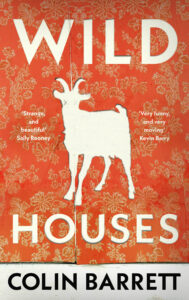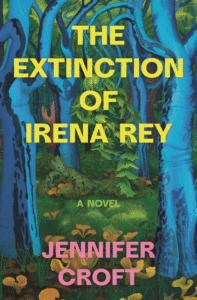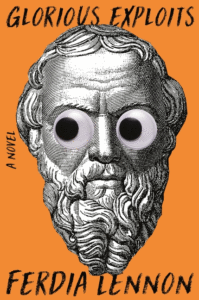
March’s Best Reviewed Fiction
Featuring New Titles by Percival Everett, Ferdia Lennon, Rita Bullwinkel, and More
Percival Everett’s James, Ferdia Lennon’s Glorious Exploits, and Rita Bullwinkel’s Headshot all feature among the best reviewed fiction titles of the month
Brought to you by Book Marks, Lit Hub’s home for book reviews.
*

1. James by Percival Everett
(Doubleday)
14 Rave • 1 Positive
“This is Everett’s most thrilling novel, but also his most soulful. Beneath the wordplay, and below the packed dirt floor of Everett’s moral sensibility, James is an intensely imagined human being … My ideal of hell would be to live with a library that contained only reimaginings of famous novels. It’s a wet-brained and dutiful genre, by and large…James is the rarest of exceptions. It should come bundled with Twain’s novel. It is a tangled and subversive homage, a labor of rough love … Everett shoots what is certain to be this book’s legion of readers straight through the heart.”
–Dwight Garner (The New York Times)
2. Glorious Exploits by Ferdia Lennon
(Henry Holt & Company)
12 Rave • 3 Positive • 2 Mixed
Read an essay by Ferdia Lennon here
“[A] thrilling and heartbreaking debut novel … a stunning (and stunningly fun) meditation on companionship, humanity and the role of performance in keeping us all afloat … Most everyone in Glorious Exploits is eternally trying on new personas and attuning them to the audience at hand. In time, that jovial creativity yields an underlying darkness; there can be morbid consequences when we step outside of ourselves to withstand the impossible … Sometimes grief is so profound that the only thing to do is proclaim it, in our own halting ways, to heaven and earth—even if those proclamations themselves cause more grief.”
–Talya Zax (The Washington Post)

3. Headshot by Rita Bullwinkel
(Viking)
12 Rave
Read an excerpt from Headshot here
“Bullwinkel’s conceit could’ve leant itself to oversimple takeaways: to meditations on, or sendups of, the bootstraps myth; to meditations on, or sendups of, girl bosses. The omniscient narrator does sometimes zoom out to make sharp, anthropological comments about the coaches’ less-than-noble motivations … But these moments…aren’t usually didactic or heavy-handed. Instead, these ideas are made particular with metaphor and strange details, which expand time poetically in each scene … This movement between graceful meditation and descriptions of fighting allows for both a dignified and a critical treatment of boxing.”
–Maddie Crum (The Washington Post)

4. Wild Houses by Colin Barrett
(Grove)
10 Rave • 3 Positive • 1 Mixed
Read an excerpt from Wild Houses here
“[A] heartbreaker of a debut novel … It could be argued that the heart and soul of Irish character, were one to venture into generalities, stem from a sensitivity to light. Certainly, the characters in this novel see very little sun, both metaphorically and practically … Nicky—and her quest—is the soul of this fine novel … In Colin Barrett’s nimble hands…the lives of a small collective of mournful souls become vibrant before us, and their yearning is depicted with wistfulness, no small amount of humor and one dangerously ill-tempered goat.”
–Dennis Lehane (The New York Times Book Review)

5. The Extinction of Irena Rey by Jennifer Croft
(Bloomsbury)
10 Rave • 2 Positive • 1 Mixed
Read an excerpt from The Extinction of Irena Rey here
“The intriguing premise of Jennifer Croft’s debut novel will prompt readers to wonder what kind of book this is. A fiendish whodunit? A riddling thriller about why the lady vanishes? A slice of psychological horror in which the assembled characters get nastily bumped off, one after the other? In fact, The Extinction of Irena Reyis something quite different. It is also, to a large extent, something quite brilliant. Croft subverts expectations with a blackly comic, fiercely inventive drama that explores the cult of celebrity and the art of translation (an art this critically acclaimed, award-winning translator has mastered) while spotlighting disparate individuals working together and falling apart … However, as Croft thickens her plot, she also clutters her narrative, often impeding momentum … But during Croft’s more streamlined sections, there is much to admire and enjoy … a frequently dizzying display, which leaves the reader both disoriented and exhilarated.”
–Malcolm Forbes (The Washington Post)
Book Marks
Visit Book Marks, Lit Hub's home for book reviews, at https://bookmarks.reviews/ or on social media at @bookmarksreads.





















